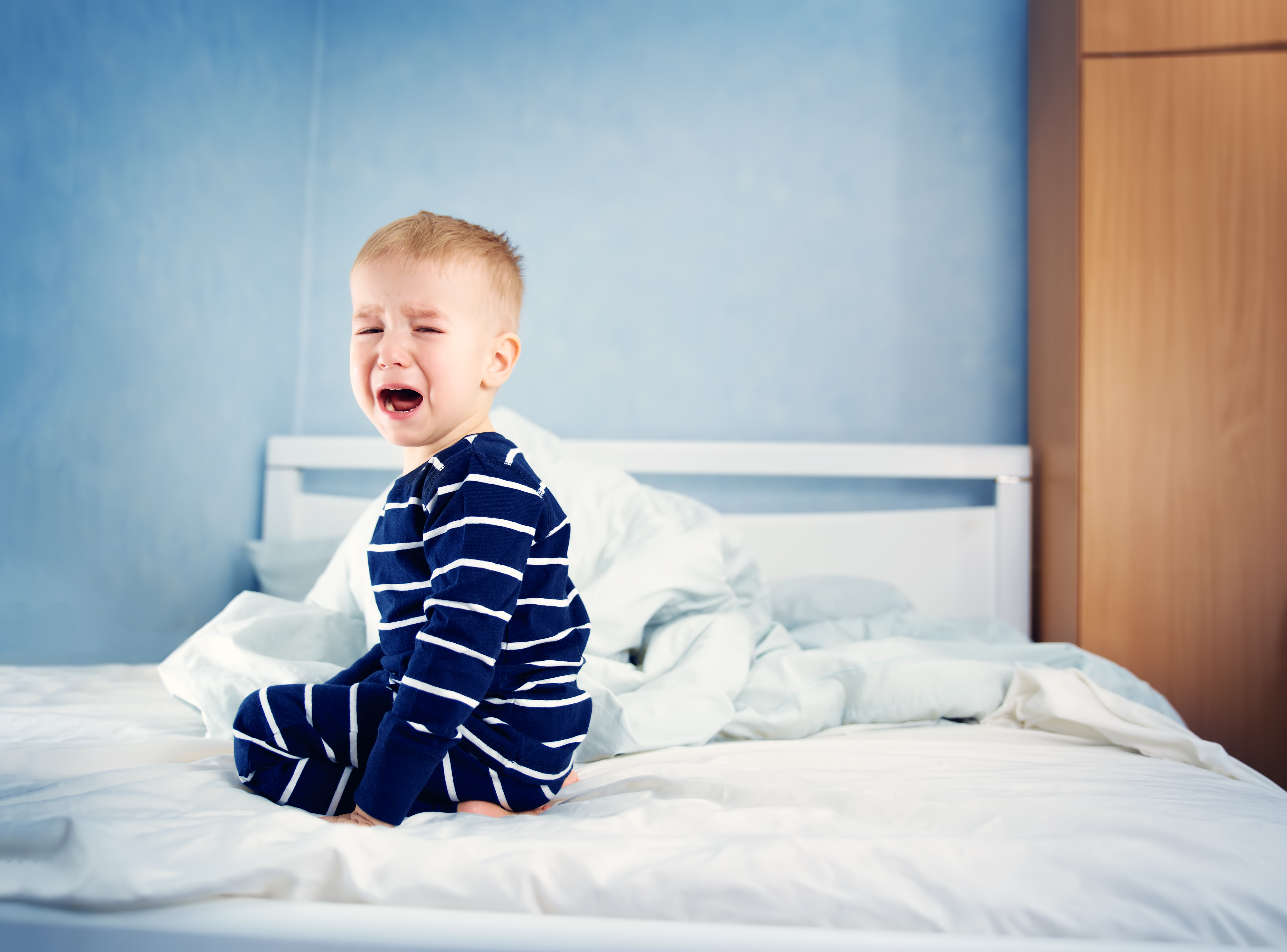
What are night terrors? Are they just bad nightmares?
Night terrors are episodes of intense screaming, crying, thrashing, or fear during sleep that happen again and again, usually in children ages 3 to 12. Sleep terrors, or night terrors, often are paired with sleepwalking.
During a night terror, a child might
- Sit up in bed
- Flail around in bed
- Scream
- Look awake but confused or frightened
- Appear flushed and sweaty
- Be sweating, breathing fast and have a racing heart
- Seem like they don’t know that a parent is there
- Not talk coherently
- Not respond when a parent tries to comfort them
Night terrors are different from typical nightmares, which happen during rapid eye movement or dream sleep. If your child is having a night terror episode, you might have a more difficult time waking them. Unlike nightmares, children usually do not recall the night terror episode the next morning. The dreamer of a nightmare wakes up from the dream and may remember details, but a person who has a sleep terror episode remains asleep.
What causes night terrors?
Most of the time, there are no specific causes for night terrors. But the following might play a role, such as:
- Genetic factors
- Stress
- Anxiety
- Fever
- Lack of sleep
- Too much caffeine
- Sleeping in an unfamiliar place, away from home
- Medications that affect the central nervous system (the brain), recent anaesthesia
- Restless legs syndrome
- Sleep problems like obstructive sleep apnoea
How can I prevent my child from having night terrors? Are they harmful?
- Get rid of anything that might disturb their sleep, like electronic screens or noises.
- Try to lower your child’s stress levels.
- Make sure your child gets enough rest and sleep. Don’t let them become too tired or stay up too late.
- Create a relaxing bedtime routine and stick to it.
- Make your child’s room safe so they aren’t hurt during an episode.
- Seek medical advice if your child has snoring, restless sleep or excessive limb movements suggestive of associated sleep disorders
Though night terrors can be alarming for parents, they are not a cause for great concern. Most children outgrow night terrors by their teenage years. Night terrors may require treatment if they are frequent or intense or if they pose a safety risk.

Dr Jenny Tang
Consultant Paediatrician
SBCC Baby & Child Clinic (Asthma, Lung, Sleep, Allergy & Paediatric Centre)









